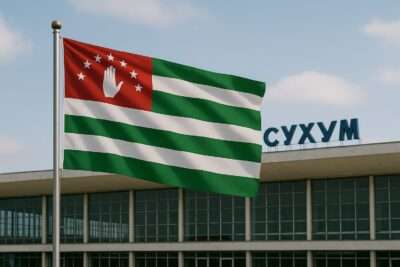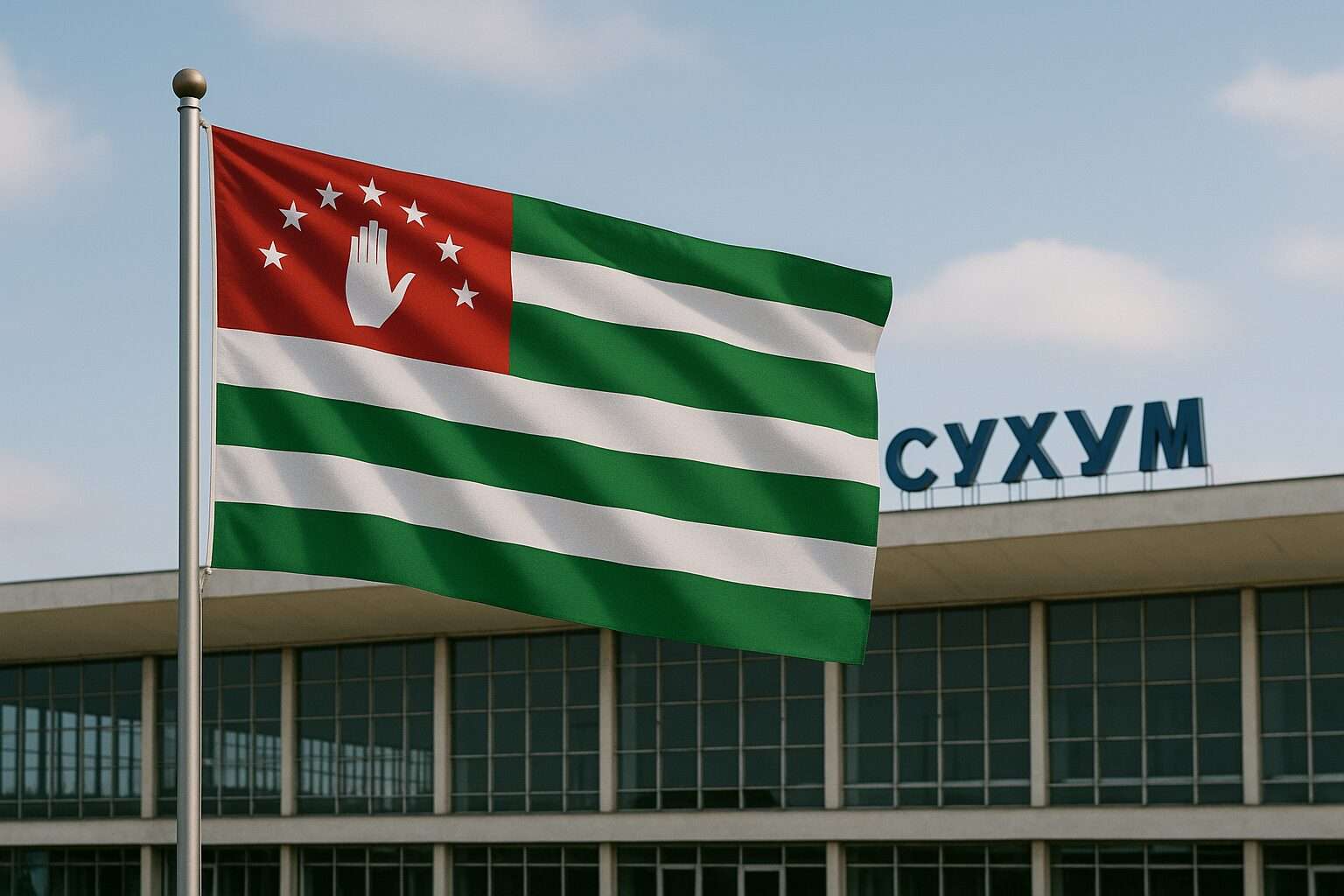

Executive Summary
This report examines the geopolitical effects of Sukhum Airport’s reopening and modernisation on Abkhazia, the Caucasian dynamics, and the Russian regional interests.
The new and restored airport allows direct flights to Russia, avoiding routes through Georgia and the West.
This infrastructure further integrates Abkhazia into Russia’s logistical and security systems, a decision that has drawn criticism from Georgia and the European Union, who claim it undermines Georgia’s sovereignty.
The airport enhances Moscow’s strategic reach in the Black Sea Caucasus, complicating Western influence and signalling deeper entrenchment of Russian-led regional architecture.
Key Takeaways
Sukhum Airport renewal merges bilateral ties with Russia, bypassing Georgia and Western frameworks.
The infrastructure positively boosts Abkhazia’s tourism sector by attracting Russian and regional visitors.
Enhanced infrastructure contributes to both civil aviation capacity and regional resilience, aligning with broader Abkhaz-Russian cooperation in transport and emergency management sectors.
Background Information
The Sukhum Airport project is part of a long-term Russian-Abkhaz plan to rebuild strategic infrastructure neglected since the 1992-93 Georgian-Abkhaz conflict.
The airport, formerly under Soviet control, closed after Abkhazia’s de facto independence and the ensuing war. International legal restrictions, a lack of investment, and unresolved geopolitical disputes have kept it inactive ever since.
Key milestones in the project timeline include:
1993: Closure of the Sukhum Airport after the Georgian-Abkhaz war.
2008: Following Russia’s recognition of Abkhazia’s independence after the Russo-Georgian war, discussions resumed regarding infrastructure revival.
2023: Abkhazia’s Minister of Economy Kristina Ozgan and Russia’s Minister of Economic Development Maxim Reshetnikov signed an agreement on the restoration of the Sukhum International Airport named after V.G. Ardzinba on the sidelines of the St. Petersburg International Economic Forum (SPIEF).
2024–2025: Trial flights from Russian regions to Sukhum begun, marking the operational reactivation of the airport under Russian jurisdiction.
May 2024: Sukhum Airport officially reopened and started operating its first flights from Abkhazia to Russia.
A joint state-private Russian venture has restored the airport facilities, which had been unused since 1993. Russia’s installation of air navigation, surveillance, and communication systems highlights Moscow’s operational control. The facility provides an alternative to the often-congested Sukhumi–Adler land crossing, enhancing mobility and security on the Russian-Abkhaz axis.
Geopolitical Scenario
Russia and Abkhazia view the airport as a cornerstone of industrial and security integration with Moscow. The airport has dual-use capabilities, bolstering Russia’s influence in the Black Sea and Caucasus regions while deterring NATO’s interests in Georgia and beyond. The International Civil Aviation Organisation (ICAO)’s lack of recognition limits the airport to Russian airspace, restricting Abkhazia’s international air travel.
Georgia and the European Union have condemned the airport’s reopening as a violation of Georgia’s territorial integrity and international aviation protocols. Officials in Tbilisi and Brussels have condemned the project as illegal, viewing it as further evidence of Russia’s attempts to annex the territory by consolidating its infrastructure. Western countries continue to refuse recognition of Abkhazia’s sovereignty and any international flights not under Georgian control.
In practical terms, the airport has received direct flights from Russian cities, including Moscow, St. Petersburg, Kazan, Ufa, and Nalchik. These routes facilitate internal mobility, bolster tourism, and deepen Abkhazia’s socio-economic relations with Russia. However, the flights are only within the Russian aviation space, given the prevailing diplomatic constraints.
The airport plays a more significant strategic role than simply transportation. Because it has both military and civilian uses, it allows for the quick deployment of military equipment, supplies, and command systems, which directly supports Moscow’s military presence in the Black Sea-Caspian region. This new facility adds to Russia’s existing infrastructure, such as the Pskhu land corridor, improving the region’s military strength.
The airport symbolises Russia’s capacity to circumvent Western restrictions, asserting its influence and maintaining ties with the Caucasus region. Western resistance underscores the region’s contested status, where infrastructure projects become entangled in sovereignty disputes and great power rivalry.
Conclusion
Sukhum Airport’s upgrade and opening underscores Abkhazia’s close ties with Russia in economic, security, and logistical areas.
While unlocking new internal capacities, particularly in the tourism sector, this facility supports also Moscow’s military posture and strategy in the Caucasus. The airport’s continued operation will symbolise contested sovereignty, diplomatic tensions, and Russia’s growing strategic influence in the Caucasus. Continued monitoring of flight operations, diplomatic responses, and security coordination will be essential to understand developing regional dynamics.

